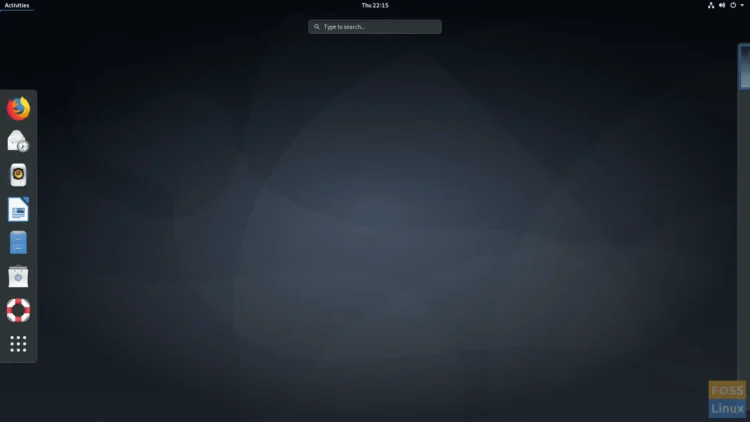As a server administrator, choosing the right operating system for your server is crucial. With so many options available, it can be overwhelming to decide which one to use. Two popular choices are Debian and Ubuntu. Both are Linux-based operating systems that share a lot of similarities but also have some significant differences. In this article, we will take an in-depth look at Debian and Ubuntu, their features, and compare them to help you make an informed decision on which one is better suited for your server needs. So let’s dive in!
What is Debian?
Debian is a free and open-source operating system that is known for its stability, security, and reliability. It was first released in 1993 by Ian Murdock and has since become one of the most popular Linux distributions available. Debian is maintained by a community of developers who work together to ensure that it remains up-to-date and secure.
One of the key features of Debian is its package management system. This allows users to easily install, update, and remove software packages from their system. Debian also includes a wide range of pre-built packages, making it easy for users to get started with their server setup.
Overall, Debian is a great choice for those who value stability and security over having access to the latest software releases. Its long release cycles mean that updates are thoroughly tested before being released, ensuring that your server remains stable and secure at all times.
What is Ubuntu?
Ubuntu is a popular Linux distribution that was first released in 2004. It is based on Debian and shares many similarities with it, but also has some key differences. One of the most notable differences is that Ubuntu has a more user-friendly interface and is generally easier to use for beginners.
Ubuntu also has a strong focus on community involvement and open-source development. This means that there are many resources available for users, including forums, documentation, and support from other users. Additionally, Ubuntu releases new versions every six months, which ensures that the software stays up-to-date with the latest features and security patches.
Overall, Ubuntu is a great choice for those who want a user-friendly Linux distribution with strong community support. However, it may not be the best choice for those who require more control over their server or prefer a more minimalistic approach to their operating system.
Differences between Debian and Ubuntu
When it comes to choosing between Debian and Ubuntu for a server, there are several differences that need to be considered. One of the main differences is their release cycle. Debian has a more conservative approach, with longer release cycles and a focus on stability over new features. On the other hand, Ubuntu has a shorter release cycle and tends to prioritize new features over stability.
Another difference is their package management systems. Debian uses the Advanced Package Tool (APT) which is known for its reliability and ease of use. Ubuntu also uses APT but has added its own graphical interface called Synaptic Package Manager which makes it easier for users who prefer a GUI.
Additionally, Debian is known for being lightweight and efficient, making it ideal for servers with limited resources. Ubuntu, on the other hand, has more pre-installed software packages which can make it heavier and require more resources.
Ultimately, the choice between Debian and Ubuntu will depend on your specific needs and preferences. If you prioritize stability and efficiency, then Debian may be the better option for you. However, if you value newer features and user-friendliness, then Ubuntu may be the way to go.
Which is better for a server?
When it comes to choosing between Debian and Ubuntu for a server, the answer is not straightforward. Both operating systems have their strengths and weaknesses, and the choice ultimately depends on your specific needs.
Debian is known for its stability and security. It has a reputation for being rock-solid and reliable, making it an excellent choice for servers that need to run 24/7 without interruption. However, this stability comes at the cost of having older software versions in its repositories.
On the other hand, Ubuntu is more cutting-edge and has newer software versions available in its repositories. This makes it a great choice for developers who need access to the latest tools and frameworks. However, this also means that Ubuntu can be less stable than Debian.
In summary, if you prioritize stability and security over having access to the latest software versions, then Debian is likely the better choice for your server. However, if you need access to cutting-edge software or are developing applications that require the latest tools and frameworks, then Ubuntu may be a better fit for your needs.
Conclusion
In conclusion, both Debian and Ubuntu have their own unique strengths and weaknesses when it comes to server usage. Debian is known for its stability, security, and reliability, making it a popular choice for enterprise-level servers. On the other hand, Ubuntu is more user-friendly and has a larger community of developers and users, making it easier to find support and resources. Ultimately, the decision between Debian and Ubuntu will depend on your specific needs and preferences. It’s important to carefully consider the differences between these two operating systems before making a decision for your server setup. Regardless of which one you choose, both Debian and Ubuntu are excellent choices for running a reliable and secure server.

